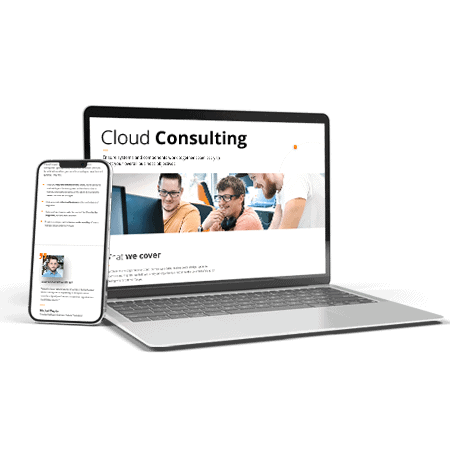
Drive to sustain: exploring the intersection of Formula 1 and sustainable business strategies
Continuing our exploration of the connection between Formula 1 strategy and business strategy, this article delves deeper into the realm of sustainability.
In our previous discussion, we highlighted the key similarities between these two domains and examined the impact of ESG developments. Now, we focus specifically on the sustainability commitment of Formula 1 and the lessons it holds for businesses of all sizes. We will explore practical steps that SMEs and other organisations can take to align their operations with sustainability goals, without requiring significant investments.
In recent years, the concept of Environmental, Social, and Governance (ESG) has become a significant driver of business strategy. As companies strive to create long-term value while minimising their environmental impact, they can find inspiration from an unexpected source: Formula 1 racing.
Beyond the adrenaline-fueled excitement and high-speed action, Formula 1 has been making strides in embracing sustainability and reducing its carbon footprint. This article explores the parallel between Formula 1 strategy and business strategy, with a particular focus on ESG developments and the importance of sustainability.
ESG and its impact on strategy
It has evolved from a mere compliance requirement to a fundamental consideration for businesses, shaping their strategic decision-making. Similarly, Formula 1 has recognised the importance of ESG and is committed to creating a positive impact on the planet.
Sustainable logistics and fuel
Logistics play a crucial role in both business and Formula 1 operations. From supply chain management to transportation, companies are seeking ways to reduce emissions and optimise efficiency. Formula 1 is no exception. The sport is actively exploring sustainable logistics solutions, such as minimising air freight and using alternative modes of transportation whenever possible.
Moreover, the development of sustainable fuels is a key focus area for both businesses and Formula 1. The sport aims to introduce advanced sustainable fuels that significantly reduce carbon emissions, showcasing the potential for greener mobility solutions in the automotive industry.
Formula 1’s net zero carbon commitment
Formula 1 has set ambitious goals to become net-zero carbon by 2030. Through the deployment of sustainable technologies, efficient power units, and the reduction of emissions across the sport, Formula 1 aims to lead the way in decarbonisation. This commitment aligns with the growing trend in business strategy, where companies are increasingly setting targets to achieve carbon neutrality and sustainability.
Driving innovation and collaboration
Formula 1 has always been a hotbed of innovation, pushing the boundaries of technology and engineering. The same principles apply to business strategy. By embracing sustainability as a key driver, businesses can foster innovation in their products, services, and operations. Formula 1’s emphasis on collaboration between teams also resonates with the business world. Just as teams compete on the track while sharing a collective goal, businesses can find success by collaborating with industry peers, stakeholders, and even competitors to drive sustainability initiatives.
Learning from Formula 1’s sustainability commitment
Formula 1’s dedication to sustainability serves as a valuable source of inspiration for businesses seeking to make a positive impact. While larger corporations may have the resources to implement grand sustainability initiatives, SMEs can also play a crucial role by adopting sustainable practices within their means.
Here are a few key takeaways that businesses can apply:
1. Embrace a Culture of Sustainability:
SMEs can foster a culture that values sustainability by integrating it into their core values and operations. This can be achieved through initiatives such as promoting energy efficiency, waste reduction, and responsible sourcing. By instilling a sustainability mindset within their teams, SMEs can drive meaningful change.
2. Optimise Resource Consumption:
Simple steps like reducing energy consumption, optimising water usage (see solutions like https://smart-flow.eu/en), and minimising waste can have a significant impact on a business’s sustainability efforts. SMEs can implement practices such as using energy-efficient equipment, encouraging recycling, and adopting responsible packaging solutions to reduce their environmental footprint.
3. Collaborate and Share Best Practices:
SMEs can leverage their networks and industry associations to collaborate with other businesses and share best practices for sustainability. By joining forces, they can collectively address sustainability challenges, learn from one another’s experiences, and accelerate progress toward common goals. (Start building networks of shared knowledge, by using business strategies like the Strategy of Kindness).
4. Engage Stakeholders and Customers:
SMEs can actively involve their stakeholders and customers in their sustainability journey. By transparently communicating their sustainability initiatives and progress, businesses can build trust, foster loyalty, and inspire others to embrace sustainable practices.
5. Support Sustainable Partnerships:
SMEs can prioritise partnering with suppliers, vendors, and service providers who align with their sustainability values. By selecting partners committed to sustainable practices, SMEs can extend their impact and drive positive change throughout their value chain. (check https://www.future-processing.com/the-future-processing-way/ for inspiration).
Conclusion
As businesses navigate the complex landscape of ESG and sustainability, Formula 1 offers valuable lessons in strategy. By embracing a culture of sustainability, optimising resource consumption, collaborating with stakeholders, and supporting sustainable partnerships, SMEs can make meaningful contributions towards a greener future without requiring significant investments. As we witness the convergence of Formula 1 and business strategies on the path towards sustainability, let us seize the opportunity to drive change within our organisations and create a positive impact on the world around us.








